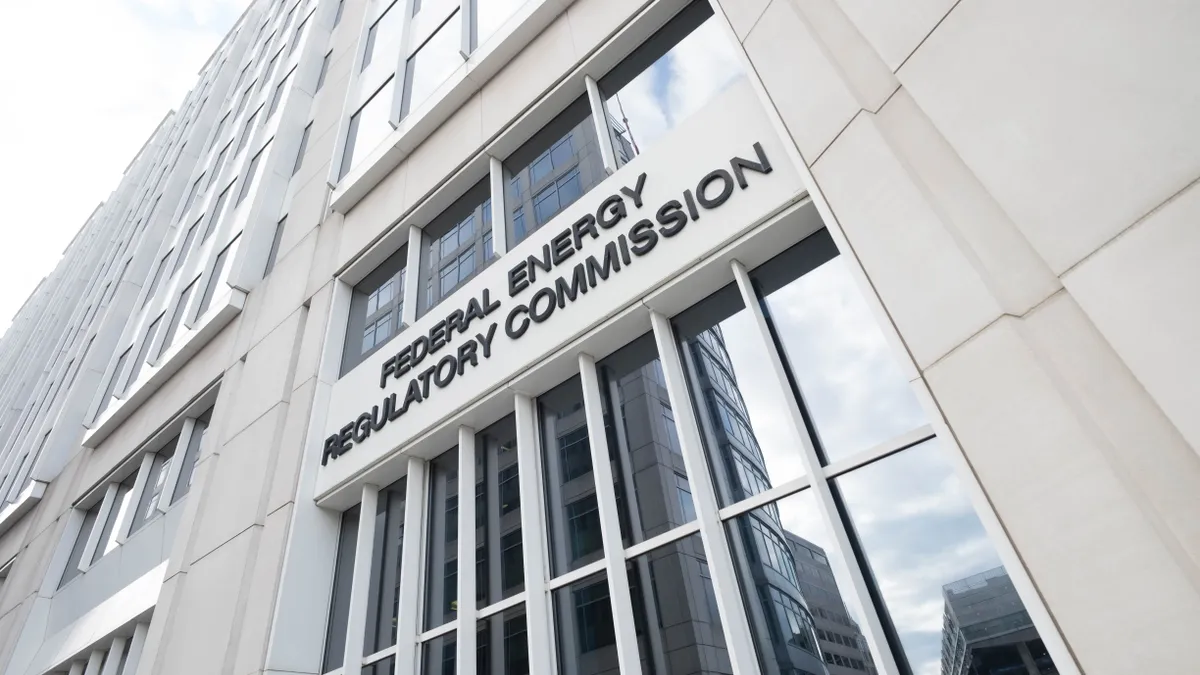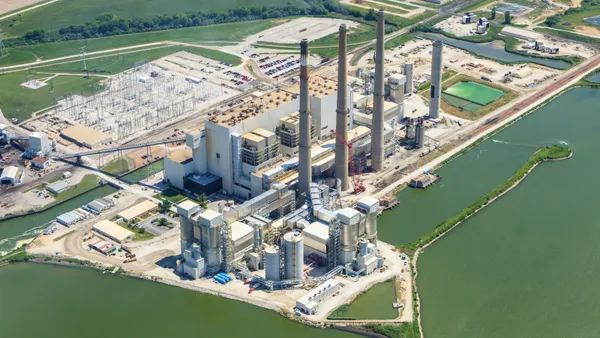Dive Brief:
-
The Federal Energy Regulatory Commission on Thursday voted 4-1 to close its resilience docket opened in response to a 2017 effort by the Department of Energy to bail out uneconomic coal and nuclear plants.
-
FERC's decision comes in the midst of rolling outages that have plagued the state of Texas, and Commissioner Neil Chatterjee, in his sole dissent, argued the resiliency docket was precisely the right place to examine these and other reliability issues. "We are failing the American people by kicking this can further down the road in the middle of a crisis affecting millions of Americans," he said. "If this proceeding, with the substantial record that has been developed, isn't the correct vehicle for a serious and honest look at resilience, please tell me what is."
-
But the other four commissioners argued that the resilience docket has been unproductive, and a more regional approach might be a more effective way to address those issues. "The docket we're terminating has nothing to do with what has been going on this week," said Chair Richard Glick. "It grew out of a politically charged effort to prop up particular resources that were losing market share, which is simply not the way to ensure the resilience of the grid."
Dive Insight:
DOE's coal and nuclear bailout proposal, known as the DOE NOPR, was one of the most contentious energy proposals under the Trump administration — the proposed rule would have provided cost recovery for power plants that keep 90 days of fuel onsite, such as coal and nuclear power plants. FERC unanimously rejected adoption of the proposal in 2018, and instead opened a docket on resilience, kicking the issue back to grid operators.
Chatterjee, in his dissent, argued this docket was separate from the DOE's proposal, and instead an effort to look at resilience through a "fuel neutral lens."
"I want to be very, very clear here. I voted against the DOE NOPR, and I'm voting today ... to double down on that decision," he said. "I continue to oppose a coal bailout in any way, shape, or form. That is not what this proceeding is about."
But Glick and the other commissioners pointed out that little to no action has been taken on the docket since it was opened in 2018.
Chatterjee "was chairman for two years," Glick told reporters Thursday. "If he wanted to move something or do something for resilience in this docket, he could have done it. He did absolutely nothing."
"Then I looked at his dissent today, and I listened to his comments — zero proposals," Glick added. "He didn't indicate one bit what he would do, what the commission should do."
Commissioners also noted that the continued existence of the resilience docket may even be counterproductive.
Though Chatterjee's "impassioned and very, very reasonable" arguments were compelling, "truth be told, this docket has caused trouble," said Commissioner James Danly. "We've always had it hanging around as a potential source for action on resilience issues, and instead, what it's done is give false hope to people who have really wished to see action taken."
He, Glick and other commissioners agreed a regional, case-by-case approach would be more appropriate, and emphasized that the closure of the docket does not mean FERC is done examining the resiliency issues.
"Procedurally, this matter has languished for more than three years with no action, so the unavoidable conclusion is that these issues need to be shifted to other procedural vehicles to make progress," said Commissioner Mark Christie. "And that's the basis on which I'm concurring ... not on the substantive basis of putting the issue of resilience aside, that's not the case at all."
"As today's order points out, the resilience challenges facing the nation differ dramatically from region to region," said Glick. "For instance, the wildfires that threaten the grid in the West and the hurricanes that threaten the Gulf and along the East Coast are unlikely to pose much of a threat to MISO. The only reasonable way to address these different [issues] is through a region by region approach."















